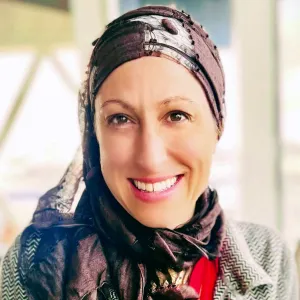Over the past forty years, Muslim Feminist theology has emerged as a transformative field of constructive theological inquiry. As scholarly investigations into the gendered dimensions of classical Islamic ethics and jurisprudence proliferate, Muslimah theologians engage the Qur’an and authoritative early Islamic sources through distinct hermeneutical approaches that privilege female experiential knowledge as a legitimate—and indispensable—theological source. Their scholarship seeks to sway public opinion, impact Muslim subcultures, and embolden generations of scholar-practitioners to maintain fidelity to Islamic convictions and methods of spiritual cultivation while simultaneously addressing practical challenges arising from the messy realities of life. Centering the Qur’an as the primary authoritative source, Muslimah theology interrogates fundamental questions of social ethics, female corporeal and intellectual autonomy, and the transformative potential of liberative feminist epistemes to critique gender-conservative religious discourse. Their scholarly interventions in hadith studies, Islamic ethics, and legal theory address pressing questions emerging from contemporary Muslim communities—spanning issues from female spiritual worth to embodied religious praxis. These scholars seek to address contemporary ethical challenges that are exacerbated by imbalanced and unjust social hierarchies and other forms of systemic corruption. Muslimah theologians engage in interreligious dialogue, contribute to comparative theological discussions, and their methodological innovations in Qur’anic studies illuminate novel dimensions of divine discourse. These scholars have developed sophisticated interpretive paradigms that synthesize classical exegetical principles with contemporary analytical tools drawn from feminist theory, semantic analysis, and literary hermeneutics. Methodological innovations of Muslimah theologians advance gender-inclusive readings of the Qur’an while drawing upon phenomenological frameworks in religious studies. Their work intersects with broader academic debates in religious studies concerning women’s liberation and the capacity of premodern religious discourse to advance contemporary female dignity, agency, and flourishing.
Celene Ibrahim is a multidisciplinary scholar specializing in Islamic intellectual history, gender studies, comparative religion, and ethics. She is best known for her monograph Women and Gender in the Qur’an (Oxford University Press, 2020). The book won the Association of Middle East Women’s Studies Book Award and was featured by the American Academy of Religion for Women’s History Month. Ibrahim is also the author of Islam and Monotheism (Cambridge University Press, 2022), an accessible primer on Islamic notions of the divine. She is the editor of the anthology One Nation, Indivisible: Seeking Liberty and Justice from the Pulpit to the Streets (Wipf & Stock Publishers, 2019), excerpts of which are featured in the Harvard Divinity Bulletin. Ibrahim also writes on spiritual care, chaplaincy, religious leadership, and related themes. She regularly publishes essays and book reviews in scholarly and popular publications. Ibrahim is a trusted voice for media outlets, including NPR, PBS, and Netflix. She offers courses and lectures for educational and civic institutions around the world and is currently a faculty member at Groton School in the Department of Religious Studies and Philosophy where she also holds an appointment as Muslim Chaplain.
